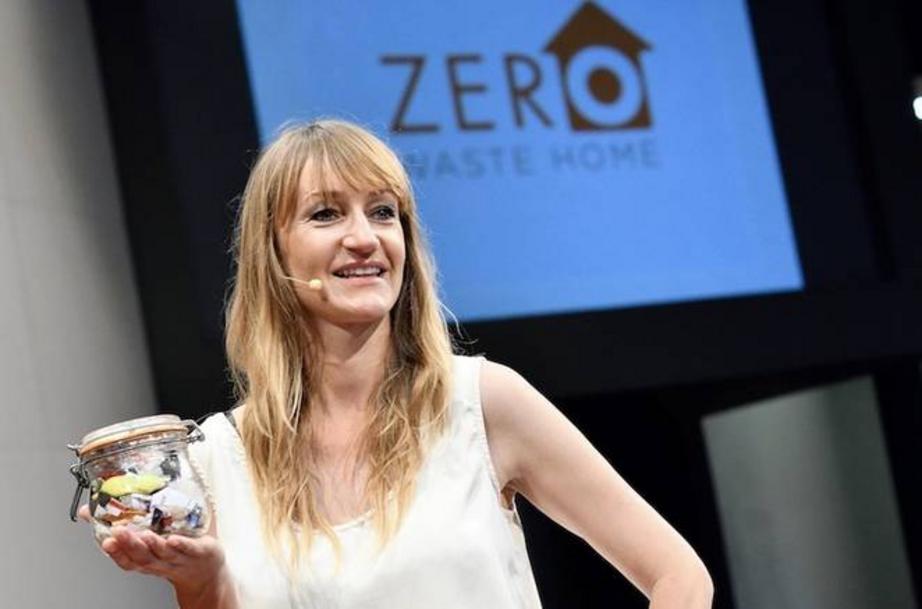Bea Johnson says, 'Don't be afraid of zero waste!'
In a podcast interview, Johnson says the lifestyle may seem scary but you'll be amazed at how rich your life can be.
Anyone familiar with the Zero Waste movement will recognize Bea Johnson's name. Johnson created the Zero Waste Home website and book, both of which have been hugely influential over the past decade in pushing zero waste into the mainstream consciousness. Johnson is now a renowned speaker who travels the world giving presentations on zero waste and trying to shatter the misconceptions of what the lifestyle looks like.
In a new episode from the podcast '2084', which looks at businesses in the sustainability field, Bea Johnson is interviewed by Stephen Szucs about her impressive attempts to create a trash-free world. Having read Johnson's book a few years ago (it was published in 2011), I found it interesting to hear her talk about how it all started and provide an update on where she's at now.
For Johnson, it all started when she came to the United States as an 18-year-old au pair. She wanted to live the American Dream, which meant a big house, big car, big appliances. She soon found herself living in a mansion on a cul-de-sac in suburban San Francisco; but inevitably realized it wasn't what she truly wanted. After downsizing and putting most belongings in storage for a year, she and her family discovered they hadn't missed 80 percent of their belongings. That triggered a process of decluttering and simplification that eventually evolved into zero waste.
At the time, in the mid-2000s, 'zero waste' was only used to describe industrial waste management practices and in manufacturing contexts, but Johnson felt it described exactly what they should be doing at home. Why not bring it into the domestic and consumer sphere? After all, consumers are the ones who shape the future. As she told podcast host Szucs:
"Every time you buy packaging, it's a way for you to say I love packaging and I dream of a world filled with packaging for future generations, and that's what will happen. If you buy your food in bulk with reusables, it's a way for you to say I believe in an unpackaged world for our children and I vote for that unpackaged world."
Johnson does a good job at promoting zero waste and making it look highly appealing. She points out how it simplifies one's life, creating less to be cleaned, organized, and maintained. It saves money (40% of her family's budget), which allows one to have a life based on being, rather than having. It is aesthetically appealing because there is less clutter. It is environmentally responsible and sends a powerful public message that consumption must be slowed, questioned, and rethought. It frees up consumer goods for a secondary market (as in, thrift), which is important for zero waste to work.
In conclusion, she urges wannabe zero-wasters to start with what's easiest. Do not attack your collections of beloved belongings, whether you're a fashionista, a home chef, or woodworker, because that's just too hard. Start simple and you'll find the process of decluttering to be addictive and liberating.
She reminded listeners of the 5 Rs: Refuse, Reduce, Reuse, Recycle, Rot. Refusal is the most important first lesson to learn -- that to accept is to condone, and that allowing excess stuff into your home creates demand to produce more.
You can listen to the entire episode here.
For the rest of this article please go to source link below.

